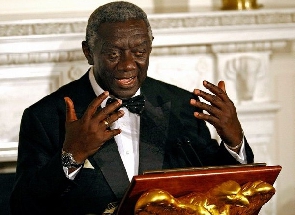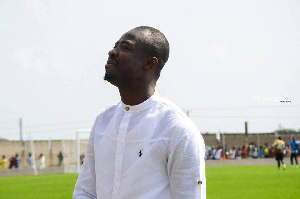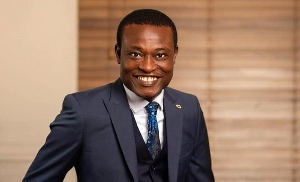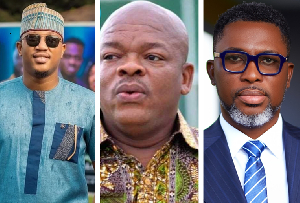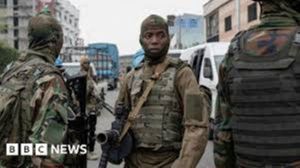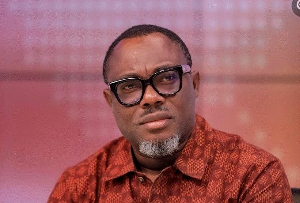The high rate of corruption in Ghana continues to hinder the country's development.
Being ranked third among the world’s 10 most corrupt countries is a clear indication that the fight against corruption needs to be intensified.
In a bid to end corruption, former President John Agyekum Kufuor, in 2006, urged journalists to report corrupt government officials to the police rather than informing him, the president. According to him, the police service is more capable of conducting an independent investigation.
"But it is only fair that when there is an allegation of corruption made against people in government, media people should go directly to the Police, not the President," the president explained.
Contrary to this, President Akufo-Addo, has also urged members of the Diplomatic Corps to report cases of corrupt government officials to his office promising not to shield any of his officials found in acts of corruption.
"Should you, members of the Diplomatic Corps, be notified of any evidence of corruption against any of my appointees, I insist that they are shared with my office to enable action to be taken on the matter”.
Read the full story originally published on January 31, 2006, on Ghanaweb
President John Agyekum Kufuor on Tuesday urged journalists who had information about corruption on government officials to go to the police and not the President.
President Kufuor said there was no denying the media's rights to publish stories on corruption and that the government was always ready to cooperate with the media while it recognised their watchdog role over society.
"But it is only fair that when there is an allegation of corruption made against people in government, media people should go directly to the Police, not the President. Those who feel they must come to the President may address their concerns to the Office of Accountability, which can be trusted to act independently of government." President Kufuor said this when he delivered his State of the Nation address to Parliament in Accra.
Addressing the subject of corruption and the perception that his government was not doing enough to fight it, President Kufuor said budgetary allocations to the state institutions with responsibility to investigate and prosecute corruption had doubled since 2001. He said he was willing to appear before the Commission on Human Rights and Administrative Justice (CHRAJ) on the charge that he had used state funds to renovate his private residence.
"My attorneys worked on my behalf to respond to the charge. Somehow, the person who laid the charge, an honourable member of this House (Parliament), just failed to prosecute the case yet charges of that kind continues to be made."
"Where does it happen in these parts that a sitting President so readily submits to investigation?" he asked.
President Kufuor noted that for so many years the country had indulged in a destructive culture of non-maintenance and that the government was determined to halt the trend.
Referring to an Indian loan to build a presidency, he said the refurbishment of Peduase Lodge had begun and that government was ensuring that the country had a fitting presidency.
"God willing we will leave that legacy," he said. "We should ask ourselves why we have since independence held Christiansburg Castle as a token Presidency. None of our Presidents have really lived in the Presidential apartments at the Castle. It is simply not built for families."
President Kufuor said money for the project was not being taken from the budget. The Indian government loan for the project has a five-year moratorium and a 20-year repayment period with 1.75 per cent and a 40 per cent grant component.
"This is the capital that will be used to execute this project; I assure Ghanaians that the returns would be a hundred-fold." MPs of the main opposition party, the National Democratic Congress (NDC) walked out of parliament when the agreement came to register their opposition to the loan for the project.
General News of Friday, 31 January 2020
Source: www.ghanaweb.com





